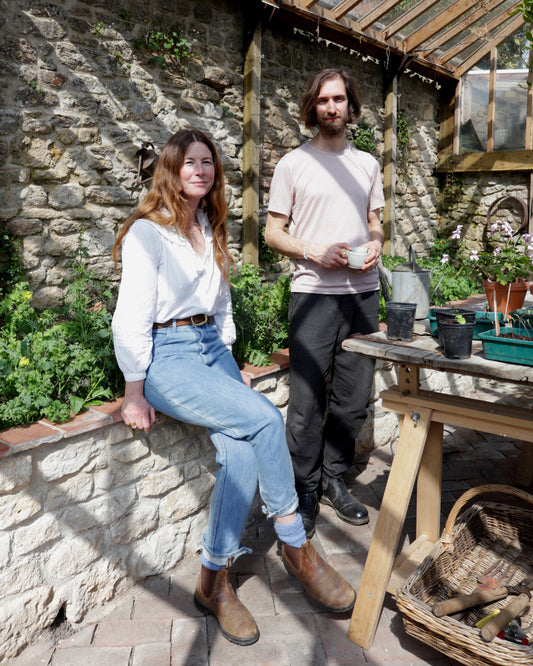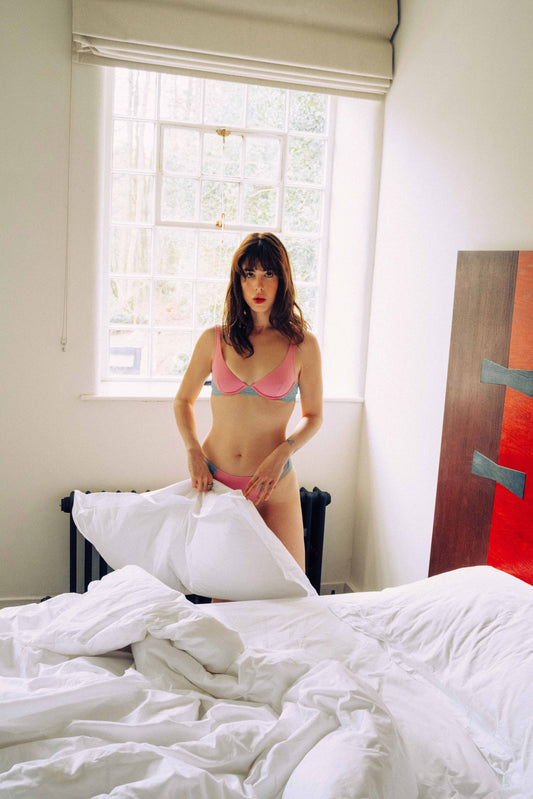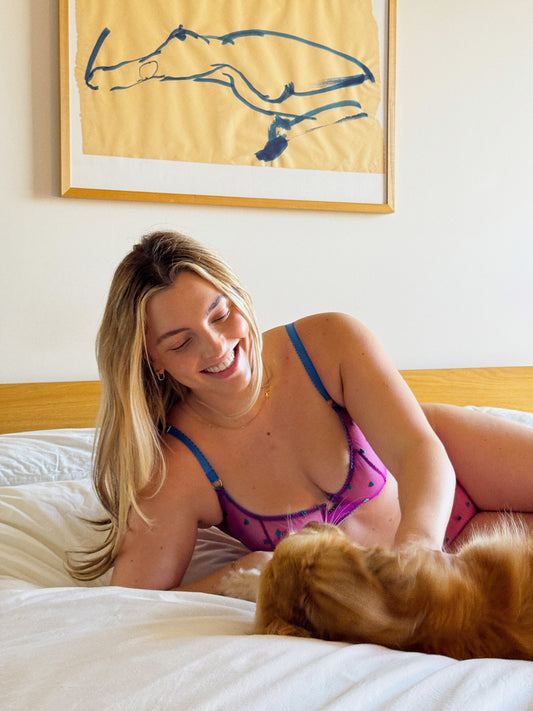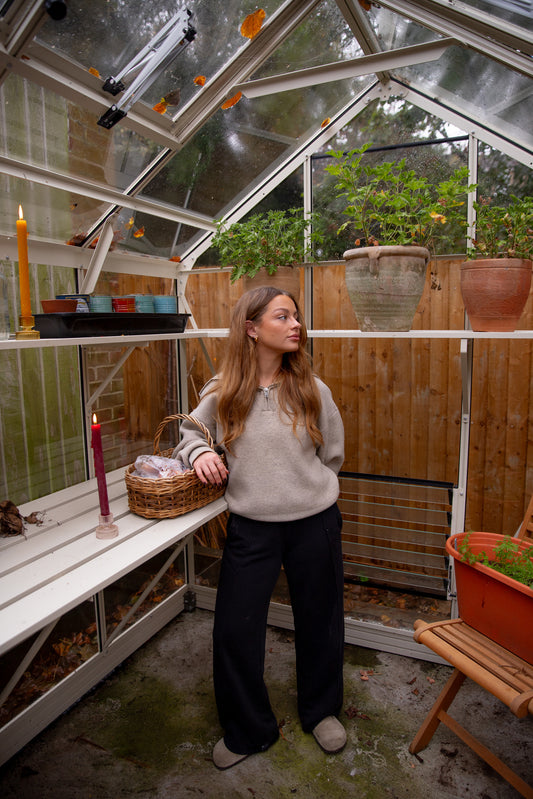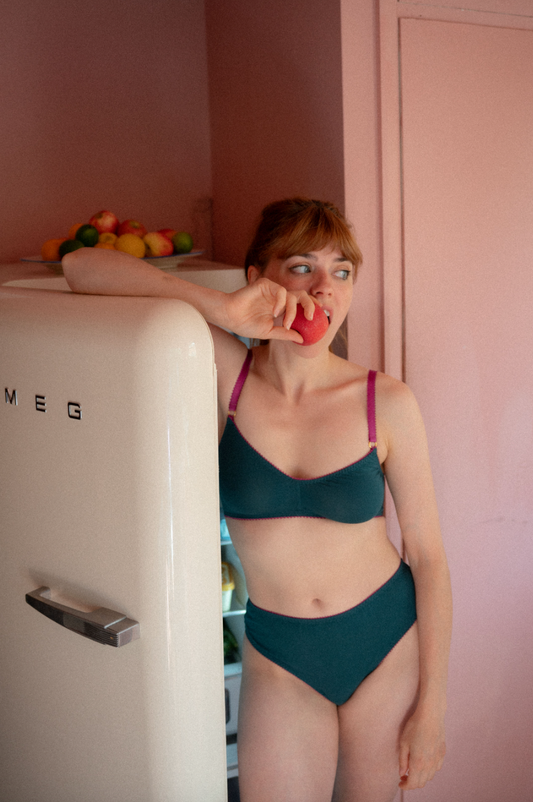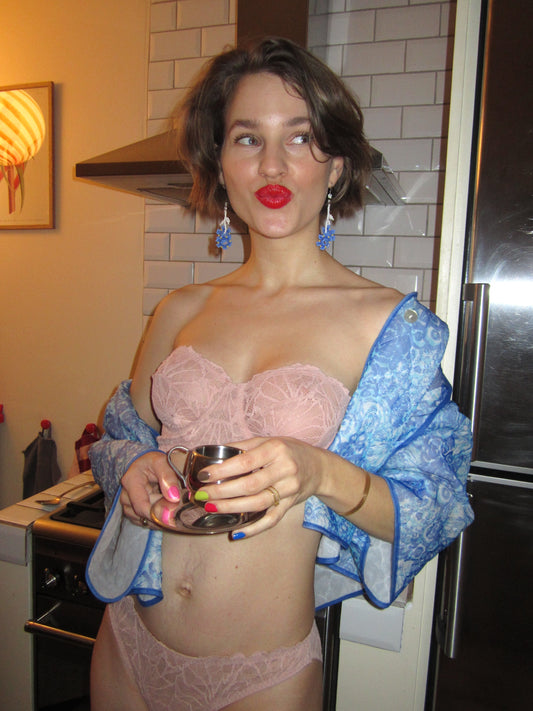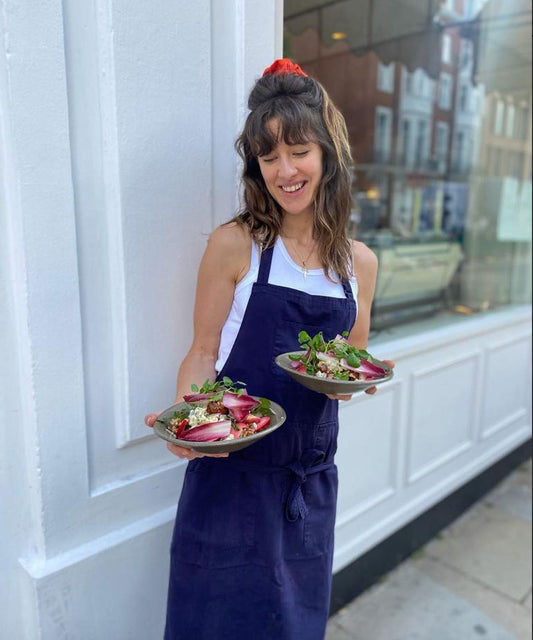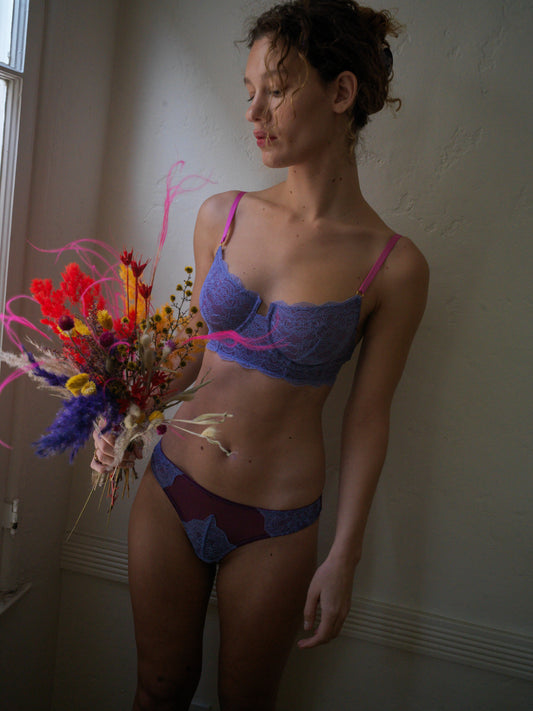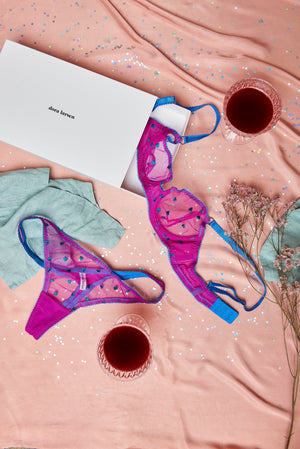As part of our Black Friday focus on organic and regenerative farming, we visit the homestead of our founders, Georgia and Jake, in Somerset. We interview Jake, and learn about his passion for biodynamic and no-dig farming.
What sparked your interest in growing your own food organically? How does growing your own food make you feel, and how has it impacted your life?
I’ve always felt a deep connection with plants and trees, and a strong draw to spending time outside in nature. My favourite place to be as a kid was always in the woods, I felt safe there and being surrounded by trees has always, for me, instilled a sense of being home. It was this affinity with nature, and particularly plant life, that drew me to veg growing and gardening.
Throughout my 20s, living in London flats and hearing of the years long waiting lists on London allotments, I never felt I had the opportunity to start growing (although see below on window boxes and balcony gardens). But once Georgia and I moved into our first house together in South East London - in anticipation of the arrival of our daughter, Cleo - I made plans to build my first “no dig” vegetable bed and haven’t looked back. We now live on a homestead in Somerset and grow on around 80 square metres of organic, “no-dig” beds, providing all of our own veggie needs and often plenty to spare for the neighbours!
Growing your own food is an empowering experience and knowing that what you’re eating is the output of your efforts in nurturing the land and stewarding the plants is incredibly rewarding. For me, though, the primary impact of growing on my life, is the profound healing and feeling of “connectedness” that being outside and in communion with the land and plant life brings. I find growing and spending time in the garden a perfect antidote for the stresses and strains of daily life.
What is “no dig” and how is it different from other types of gardening and growing?
No dig is a growing and gardening philosophy that aims disturb the ground and soil as little as possible.
Traditional gardening and growing practice involves “digging in” compost or manure for fertility, forking the ground for drainage and tilling or cultivating (i.e. disturbing) the soil to clear weeds and prepare the ground for planting or seeding. No dig on the other hand uses materials and covers (called “mulches”) applied to the surface of the soil to suppress weeds and provide fertility, e.g. layers of compost or manure, cardboard and tarpaulins.
The philosophy of no dig focusses on maximising the health of the soil, the theory being that minimising soil disturbance helps to maintain the natural structure of the soil and therefore the natural physical and biological processes that occur within it. Decaying roots and worms create natural drainage channels that help to prevent the soil from becoming waterlogged (bad for most plants!). It’s also been shown that damaging the soil structure disrupts the natural process that occur within it, having a negative impact on soil fauna, including the all-important fungal networks that help to collect and distribute nutrients to plant roots, as well as the soil microbes, which help to release nutrients from the soil and air and convert them into a form available to plants.
No-dig’s focus on soil health naturally goes hand in hand with organic growing and the avoidance of synthetic chemical sprays and other non-organic inputs. For more information on no-dig growing and gardening, I recommend binging on Charles Dowding YouTube videos.

Do you follow the cycles of the moon when it comes to planning your veg garden?
Yes. This is an age-old practice, aligning the planting of certain crops, depending on whether your harvesting root, leaf or fruit, to specific astrological positions of the moon. For a great resource on this, see Maria Thuns annual “Biodynamic Calendar”, which charts the planting phases across the year. Moon planting is just one aspect of the Biodynamic system of farming, invented by Rudolf Steiner.
In today's society, how important do you think it is to be self-sustainable and how do you envisage the future when it comes to growing and trading food?
I think that moving towards a greater level of self-sustainability is an important thing for us all to aim for, as far as our personal circumstances allow.
We typically know so little about how our food was grown and produced and it has often travelled long distances to get to us, even when produced in our own country. I’ve heard stories of small local farms and growers enquiring about supplying their local supermarket, only to find that the produce has to be sent to the supermarket’s central packing and distribution centre, often hundreds of miles away, only to be sent back to the local store. This obviously makes sense for the large scale supermarkets overall supply chain, but is pure madness for the local consumer and producer relationship.
Because of this, I think food sovereignty is really important concept. Increasing our food sovereignty involves moving towards systems that provide us with more control over, and knowledge about, how our food is produced and distributed.
I think it’s important to reduce our reliance on the modern-day food system, which is dependent on a convoluted and risky “just in time” global import and export model. I believe the best way to solve this, and at the same time move towards greater food sovereignty, is to produce as much of our own food as possible and source the rest hyper-locally, purchasing either direct from the producer, or from local farmer’s markets. Having greater knowledge and relationship with how our food is produced will also allow us to move into a greater alignment with nature, which I think is critical in our time.

Do you have to have your own garden to get involved in this movement, or are there other ways of getting involved?
No, definitely not. Even if you live in a flat in a city, you can grow herbs in a window box, or if you have a balcony, try making a mini garden using an assortment of planters. Allotments are an option, too, if the waiting lists aren’t too long where you live! If they are, you could try petitioning your local council to create more.
What advice would you give for those who’d love to start growing their own produce, but have no idea where to begin?
Remember that plants and nature ultimately want to thrive, grow and produce. So, to begin with I’d say just dive in and give it a go. Sowing peas for pea shoots on your windowsill is a good place to start. Buy your seeds, a small bag of compost (peat-free), and a small pot or planter and experience the joy of seeing your first seeds start to germinate and grow. If this gets you hooked, I’d recommend the Charles Dowding no-dig resources which you can find on his website here.


